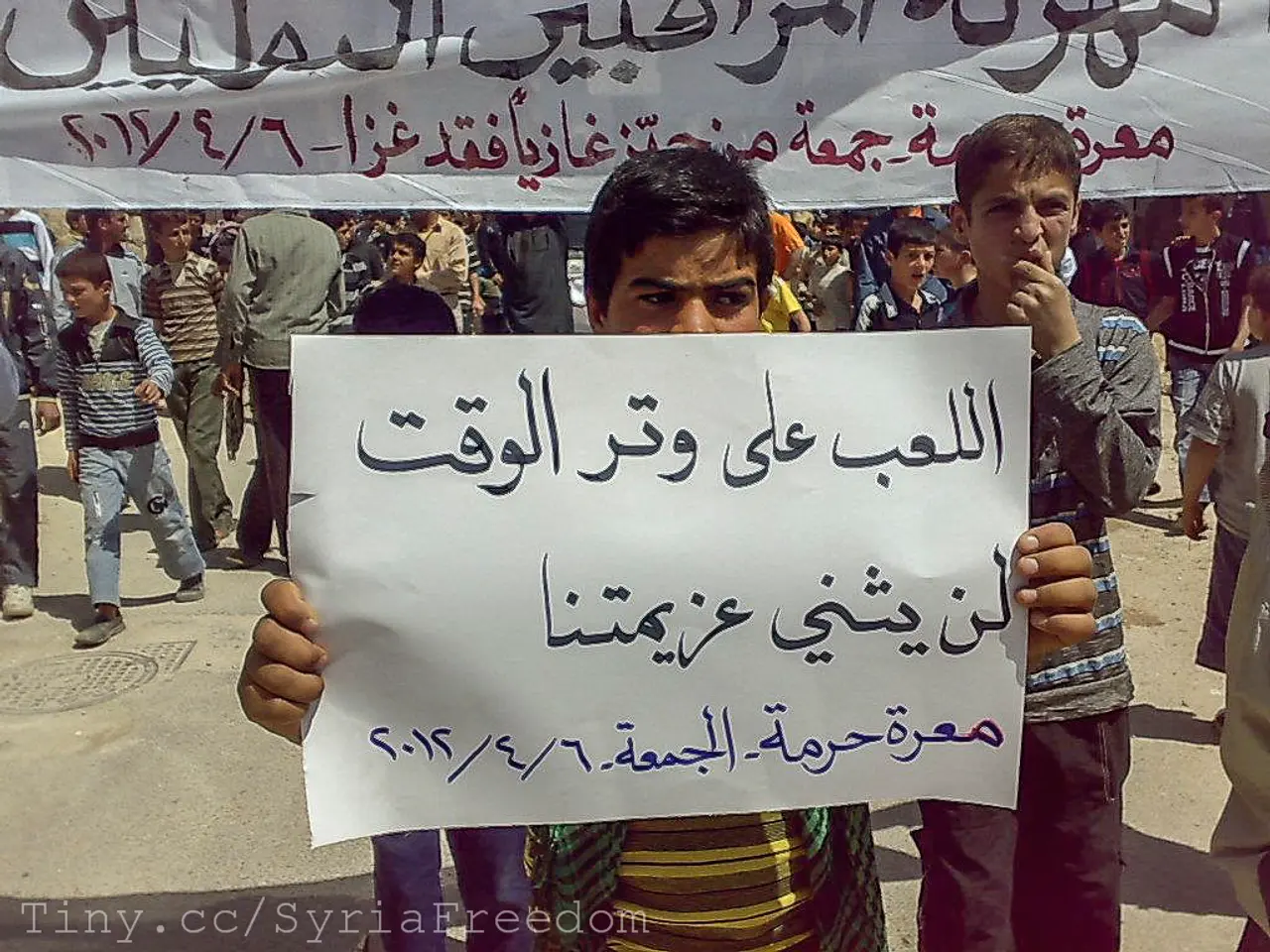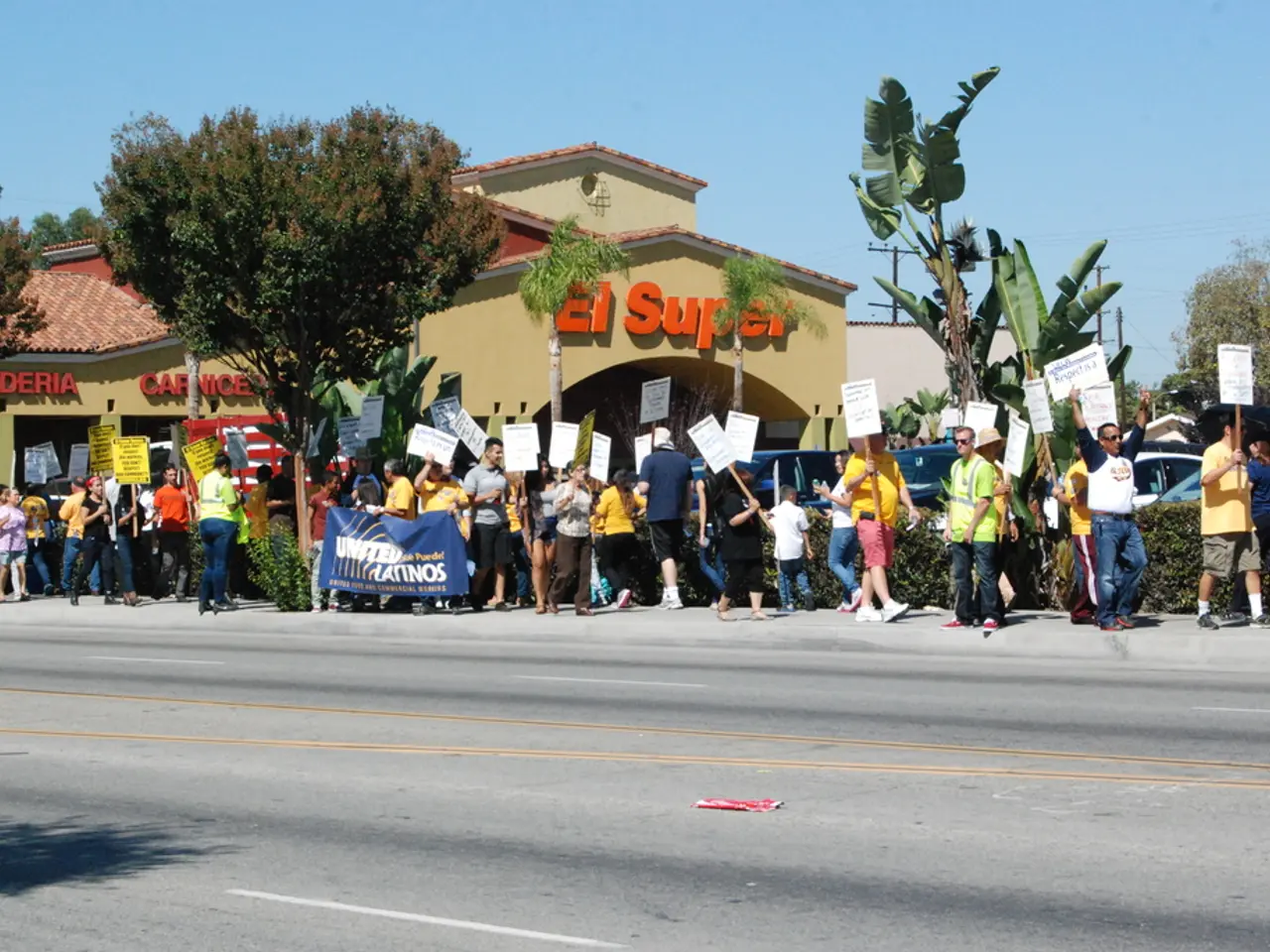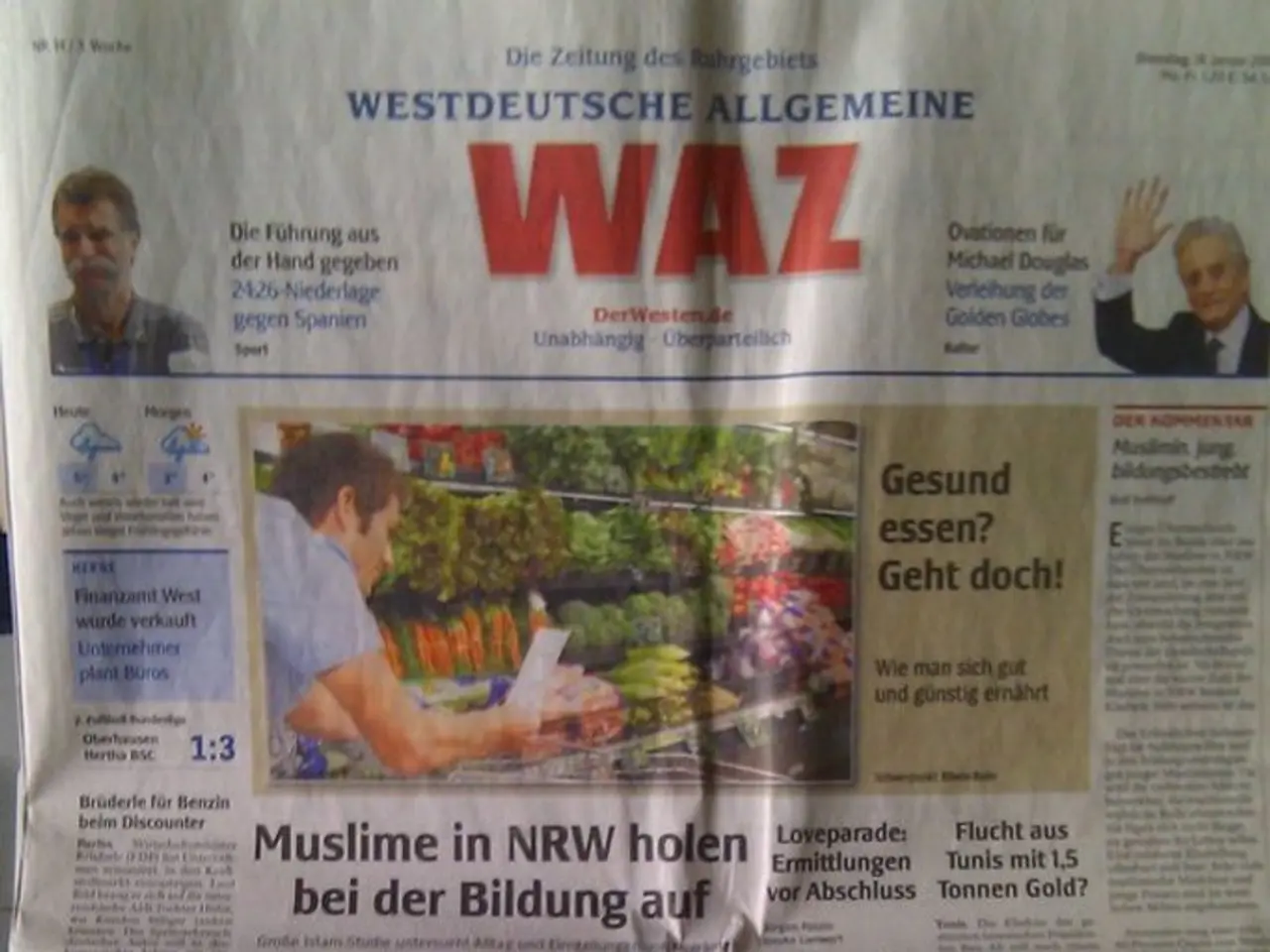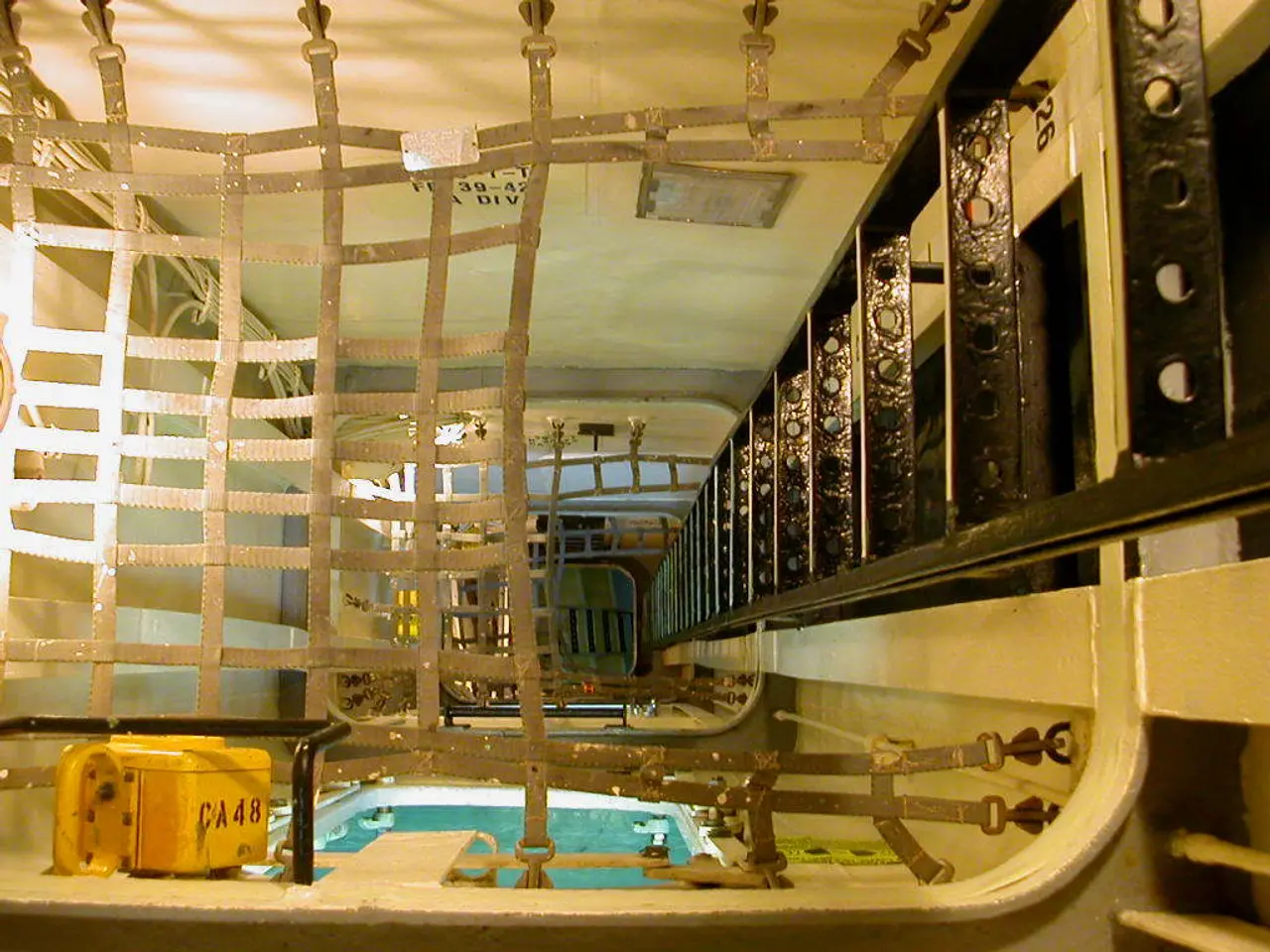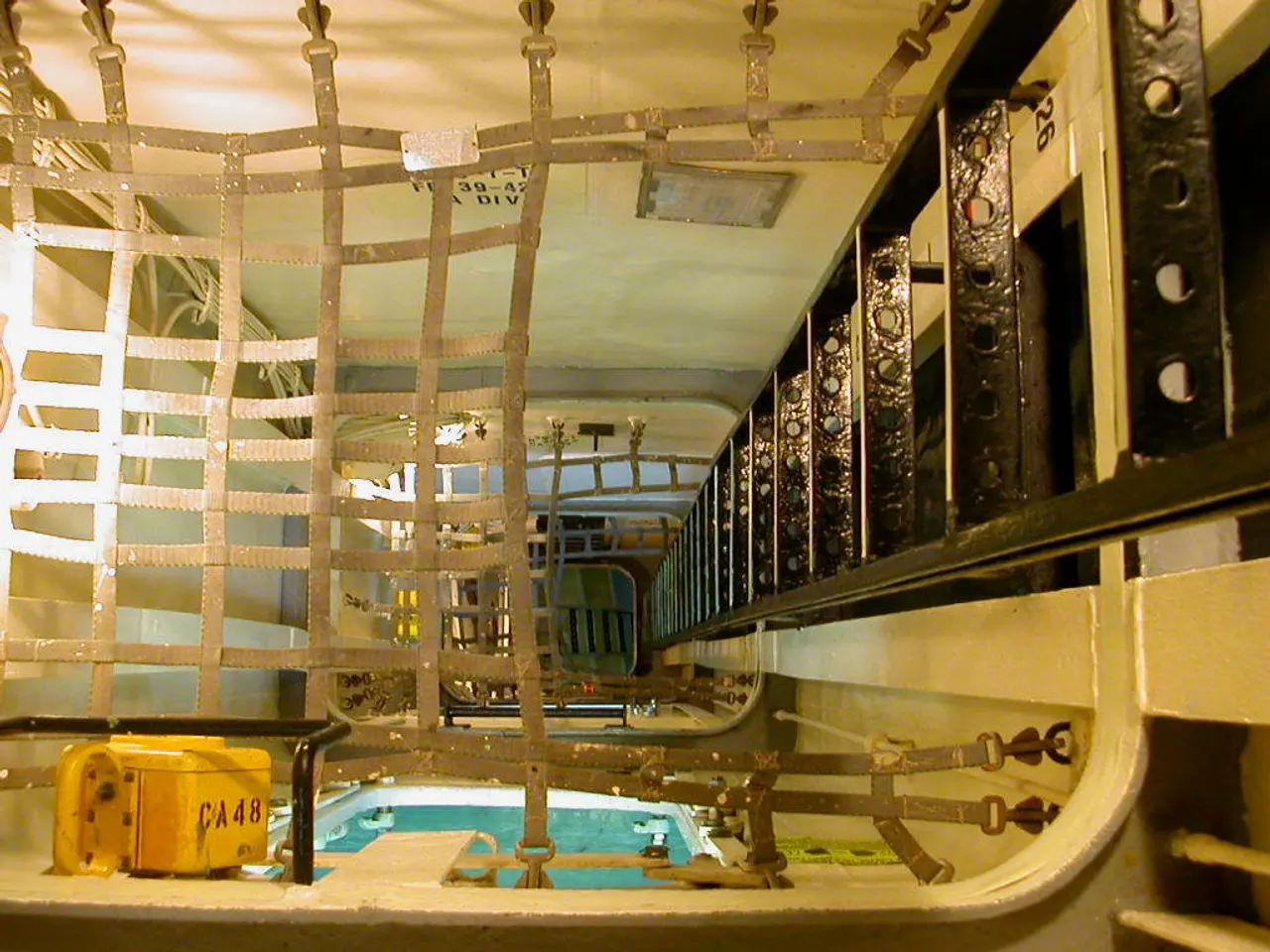US tour by Witkoff underscores increasing divide between US and Israel during intensifying Gaza crisis
In the ongoing conflict in Gaza, a stalemate has emerged as ceasefire talks have collapsed and the humanitarian crisis deepens.
Hamas, the governing power in Gaza, withdrew from ceasefire negotiations last week, effectively halting any progress towards ending the conflict. This decision was followed by the withdrawal of the United States and Israel from the negotiations, despite reported progress.
The situation on the ground remains critical, with over 156 confirmed starvation-related deaths in recent weeks, including at least 90 children. More than 1,000 Palestinians have reportedly died while seeking aid since May, according to humanitarian groups. In response, Israel has announced a pause in military operations for 10 hours a day to allow aid convoys to move safely. However, the offensive continues unabated, with famine warnings from international monitors.
Israeli Prime Minister, Benjamin Netanyahu, maintains that the war will not end until Hamas is dismantled. This hardline stance is shared by Netanyahu's coalition, which includes far-right factions advocating for the reoccupation of Gaza. The release of hostages held by Hamas remains a central unresolved issue, with Israeli officials, including Netanyahu, determined to continue military operations until all hostages are released and Hamas is significantly weakened or destroyed.
International pressure on Israel to resolve the situation is mounting, but no agreement on hostage release terms has been reached. Mothers of hostages have protested outside Netanyahu's office this week, demanding an end to the war.
In an effort to expedite food aid, U.S. special envoy, Steve Witkoff, arrived in southern Gaza on Friday. Witkoff toured a food distribution center operated by the Gaza Humanitarian Foundation (GHF) in the Morag corridor. His mission aims to secure new channels for food deliveries and assess needs on the ground firsthand.
Israel has claimed it only fired warning shots and was unaware of any casualties. However, the U.N. has called the situation in Gaza catastrophic, citing chaos, looting, and deadly encounters.
Recent developments include the U.S. slapping travel sanctions on unnamed officials from the Palestinian Authority and the PLO, accusing them of undermining peace. Additionally, Israeli ministers Israel Katz and Yariv Levin have renewed calls for annexing the West Bank.
As the conflict continues, the international community is urging both sides to return to the negotiating table and find a peaceful resolution to the crisis. The U.N. has called for an immediate ceasefire and the resumption of humanitarian aid deliveries to prevent a catastrophic deterioration of the situation in Gaza.
Diplomatic efforts to resolve the crisis in Gaza have intensified, as the United Nations calls for an immediate ceasefire and the resumption of humanitarian aid deliveries to prevent a catastrophic deterioration of the health situation. The US special envoy, Steve Witkoff, is working on securing new channels for food deliveries and assessing needs on the ground. However, political tensions between Israel and Hamas remain high, with the Israeli Prime Minister, Benjamin Netanyahu, maintaining that the war will not end until Hamas is dismantled. European nations and other international parties have increased pressure on both sides to engage in diplomacy and find a peaceful resolution to the ongoing war-and-conflicts and general-news.
Mothers of hostages held by Hamas have protested outside Netanyahu's office, demanding an end to the war, adding to the general-news and political pressure on the Israeli government. Meanwhile, Israeli ministers have renewed calls for annexing the West Bank, further complicating negotiations and heightening tensions in the region.
As the humanitarian crisis deepens, travel sanctions have been imposed on unnamed officials from the Palestinian Authority and the PLO by the US, citing their alleged undermining of peace. In the face of these challenges, the focus on diplomacy and finding a peaceful solution to the ongoing conflicts in Gaza remains crucial to addressing the root causes of the health and general-news issues at hand.
